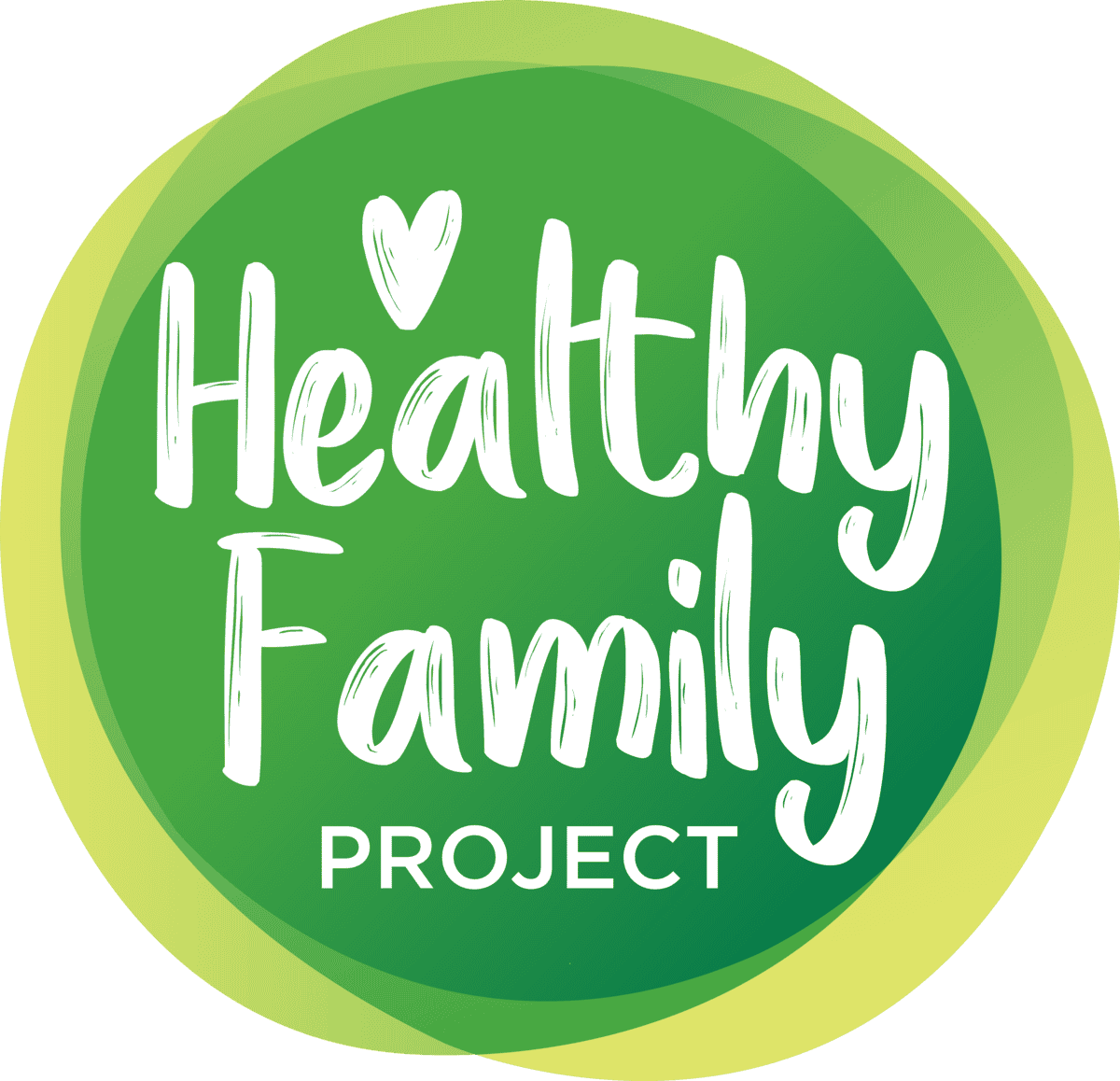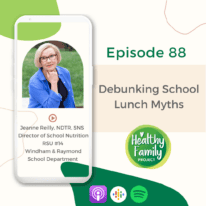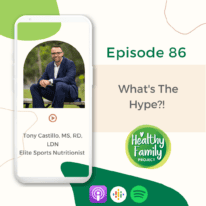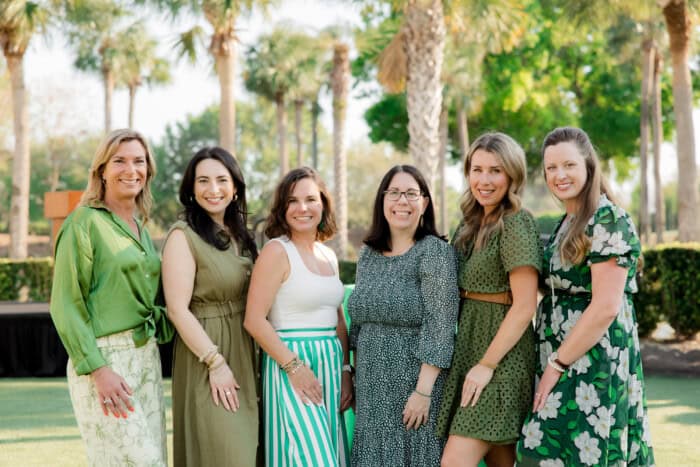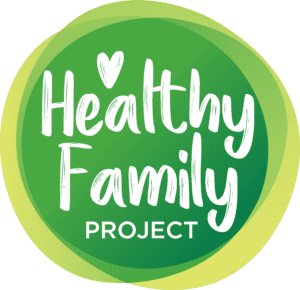Episode 87: What Teachers Want Parents to Know
We spoke with Heather Brickell from MySweetSavings who is also a mom and teacher about things that teachers wish parents knew for the school year. Listen in to Episode 87 of the Healthy Family Project Podcast as she gives tips on how to make this school year the most successful yet.
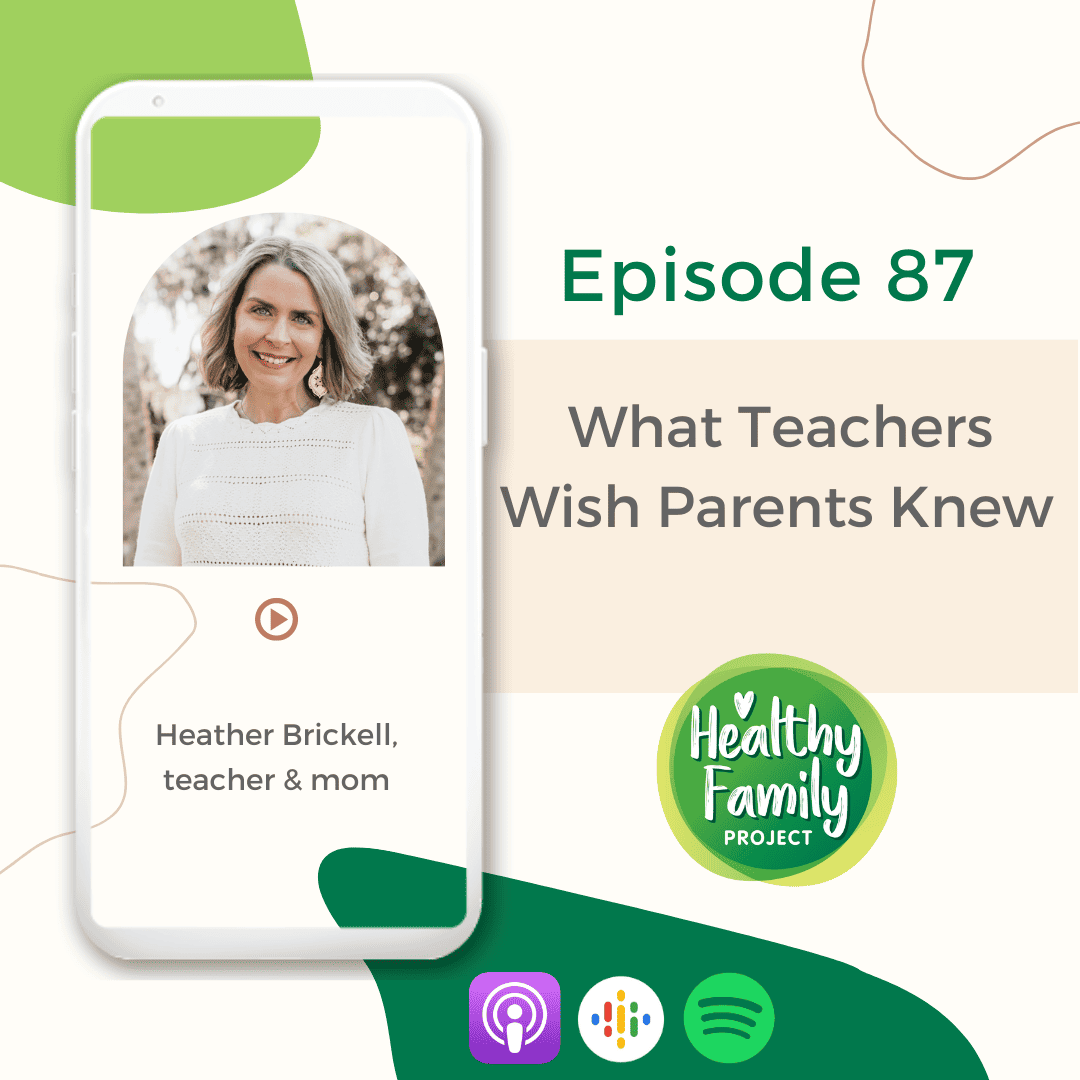
Today we are talking about the things that teachers wish us parents knew for the school year. The start to the new school year is an exciting, yet stressful time for most families and it’s hard to guess at what teachers may want from us parents.
Thankfully Heather is giving us some insider information! As a parent, I know I am very appreciative for these tips. Let’s make this school year (and every school year!) less stressful and more successful.
Listen to Episode 87: What Teachers Want Parents to Know
What We Cover
Want to skip straight to a hot topic? See timestamps below. But of course, we recommend listening all the way through to get all the great tips and tricks!
3:44 About today’s guest, Heather, including her personal life and her blog
5:46 The most vital part of a relationship between parent and teacher
9:06 How students can best approach their classroom struggles
11:03 Best way to react to classroom updates as a parent
12:11 Why reinforcement is important for your child’s learning
16:05 A hands-on way to support learning at home
17:57 Why expressing interest in what interests your children matters
22:56 Helping your kids recognize that grades don’t define them as a person
24:41 Allowing their independence to come into play
28:27 What teachers want parents to know about cultivating independence
32:27 Why happy parents make happy teachers
34:44 Why you should never talk bad about your child’s teacher in front of them
36:52 How small expressions of appreciation can go a long way
38:25 Ideas for starting off the next school year on the right foot
40:45 What can help a teacher understand classroom behaviors and attitudes
Read the Rest of Heather’s Tips!
Want more back to school tips and ideas? Head to our hub for back to school and juggling home and school life year-round.
Watch It!
Other Episodes to Check Out
- Episode 84: Tips For Parents Of College-Bound Students
- Episode 82: Sports Psychologist Tips For Supporting Your Teen Athlete’s Mental Health
- Episode 74: Talking To Your Teen About Mental Health
- Episode 54: Family Dinner Conversation Starters
Healthy Family Project Facebook Group
Don’t forget to join our Healthy Family Project Facebook group if you haven’t already to be part of the conversation around our episodes. Bookmark the healthyfamilyproject.com website ASAP because we have added several great recipes in addition to our already more than 600 registered dietitian, family-tested meal ideas.
Listener Survey!
Thank you so much for supporting the Healthy Family Project Podcast! We’d love it if you could take 5 minutes to let us know how we can bring you the best possible content for future episodes. Take the survey here.
Healthy Family Project Podcast
Conversations covering hot topics in the world of health, food and family with a dose of fun. Helping families ease their way into a new fresh and healthy world.
Be on the lookout for new bi-weekly episodes and don’t forget to subscribe on Apple Podcasts, Google Podcasts, Spotify or your favorite podcasting site. If you like an episode, make sure to leave a rating and comment.
If you are interested in being a guest on the Healthy Family Project podcast, contact amanda@healthyfamilyproject.com with your topic idea for consideration.
Transcript for Episode 87
This transcript was produced by Otter.Ai. Please forgive any misspellings and grammatical errors.
Amanda Keefer [00:00:01]:
Welcome to the Healthy Family Project Podcast. I’m your host Amanda. I’m a mom of 2 and passionate about bringing Parents and caregivers useful and digestible information to help make this journey just a little easier, more fun, and, of course, with some labs. I love to deep into topics and sharing my own struggles and successes with our listeners. I can’t wait to share this journey with you. Hi, and we’ll Welcome to the Healthy Family Project podcast. I’m your host, Amanda. If you’re joining us for the first time, welcome, welcome. We recently started showcasing our episodes on YouTube. So if you’re watching me live or I guess not live, but if you’re watching me in video form. Hello. if you’re listening via audio, hello to you too. but I will say we do have this is our 87th episode. So please go back. we have a lot of great topics that we’ve covered over the years, and a lot of those are applicable, even now, mental health, how to shop on a budget. You name it. We’re there for families, and we’ve covered a lot of the hot topics in the space. So today, we are talking all about what we’re talking with a teacher, which is pretty cool. She’s gonna fill us in on what families need to know, I guess, or what teachers wish parents and families knew, that maybe they don’t. so simple things some fun stuff, and we’re talking to Heather Brickell. And she is a teacher, as I mentioned, a mom, and she’s also the author of my sweet savings.com. so she has a lot of perspective to share, and we are gonna talk through some of those points. But before we jump in, quick note. If you don’t follow us on social media, please go ahead and and give us a follow. We are on Instagram. We on TikTok. We are on Facebook. We do have a Facebook group that’s specific for our podcast. And I’m in that group, and most of our guests are in that group as well. So if you wanted to ask a question, of one of the guests that we’ve had on our podcast. You can do that over there. you can give topic ideas just weigh in. We wanna hear from you. Definitely get over there and jump in on that conversation. If you visit our website, healthy family project.com, We have developed, I wanna say, more than 600 recipes now. All of those approved by registered dietitian, and nutritious and delicious. Most of them, I’ve actually made myself at my own house and if you’re a listener, you know, I have a a selective eater. So, check those recipes out. You can easily search by, you know, what you’re looking for, whether it be ingredient or, you know, breakfast, lunch, dinner, snack. We have all of those over there. So without further ado, let’s jump in and talk with Heather. I am so excited to have you with us today. We are in the back to school season. So timing for our topic. if you’re listening to this or watching this, now that we have our video broadcast, at back to school time, this will be helpful, but I do think this would our topic will be helpful for families at any time of the year. So before we jump in, Heather, can you tell our listeners and viewers now a little bit about you?
Heather Brickell [00:03:46]:
Sure. Thank you so much, Amanda, for having me. I appreciate it. So I, reside in Tampa, Florida with my husband, Keith, We’ve been married for 23 years, and we have 2 boys. Brady is 11 and Drew is 17. So I feel like This coming school year is kind of a lot of firsts for us in some ways. Brady’s going to middle school, and then Drew is a senior in high school, and he’ll be going up to college. So I’m kinda
Amanda Keefer [00:04:15]:
— I know. We’re kind of
Heather Brickell [00:04:16]:
in — — personal.
Amanda Keefer [00:04:17]:
We’re we’re in, and I have the 2 girls. So we’re in similar similar seasons of life.
Heather Brickell [00:04:24]:
Exactly. I’m excited, but I’m also a little sad. I’m not gonna lie.
Amanda Keefer [00:04:29]:
Yes. I know. I know the feeling.
Heather Brickell [00:04:32]:
And then I also teach part time at my youngest son’s school. After the pandemic, I got the teaching itch to go back to school. So it’s, it’s been awesome. Wonderful. And then I blog at mysweetsavings.com, I share recipes, frugal tips and ideas. I love to cook I’m not busy teaching and chasing after the boys. so I’m busy, but it’s a lot of fun.
Amanda Keefer [00:05:02]:
It sounds like it. And I am excited our topic today, which you so graciously wrote a blog post for us on our website over at Healthy Family Project dotcom. 10 things teachers wish parents knew during the school year. And I love this. topic. So we’re gonna get through I don’t know that we’ll get through all 10, but we do have the blog post up there, but we can kinda jump in and start with with the list and see where we land within our 30 minutes. but I really am excited to hear what you have to say because I often and especially with our first one, which is communication, I’m like, is this too much? Is this too little? Am I, you know, like, do they not wanna hear from me anymore? So let’s start there. Let’s start with your first of the top 10 things things teachers wish parents would new during the school year. That’s our title. Yeah. So jump in communication.
Heather Brickell [00:06:01]:
Okay. So to me, communication is, like, the number one vital thing between a parent and a teacher. even speaking from a parent’s perspective, I feel like the more that I communicate Kate with my child’s teacher, the better relationship that we have. Right? And we’re going into the the new school year. So I think it’s vital that at the beginning of the year, that you start right away having good communication because when You have those challenging situations. I feel like you already have a great relationship established with that parent or the parent with the teacher. And so, you know, when Johnny does something that, you know, he’s not supposed to do, you can go to that parent you have that established relationship, and I feel like they accept it much easier. So communication is I think it’s vital between parents and teachers.
Amanda Keefer [00:07:06]:
And would you say, well, you have 11 and 17. So was there a point where you weren’t communicating as much with teachers as your older son kind of went into that new phase.
Heather Brickell [00:07:19]:
Yes. you know, because as they’re becoming older, I feel like they’re becoming more responsible too. So I feel like the communication kind of falls on them. when they get to people. Now, you know, if there’s a situation, you know, obviously, the teacher is is going to, get in touch with me and I’ll communicate with them. But it I feel like as they get older, that responsibility is it’s it falls on them a lot. You know?
Amanda Keefer [00:07:49]:
I agree. And I’ve had I’ve had guts. I wanna say slap on the wrist, but, you know, the same. definitely whenever my oldest went to high school and I reached out to a teacher on something, and they said we really at this point would prefer that we they addressed this with us. And we can involve you. And I was like, oh, jeez. I’m being ousted. But it made that made a lot of sense to me. I was appreciative, actually, of feedback because it I’d stopped and thought for a second, you know, that, you know, but I will say, with, you know, the space we’re in right now with students and mental health and things like that, I would encourage parents if you do have an older student and you are, you know, seeing maybe going through some of those things. I know I’ve reached out and just said, hey. If things start to seem off, you know, but could you just shoot me a a note? And so I’ve had teachers be very receptive, and I know other parents to have dealt with some, you know, may mental health challenges. And before it gets to, you know what I mean? Like, we’re all of a sudden, you’re like, oh, you’re filling the class and you didn’t do any of the work.
Heather Brickell [00:09:07]:
Yes. That’s right. And you know what? That’s like, you know, I tell Drew too. If you have a problem You know, don’t be embarrassed or whatever to go to your teachers. I feel like sometimes when kids get older, that not that they’re too cool, but they are sometimes, but they just think that, oh, I’m not gonna go to that teacher. You know, I’m not gonna go to my parents, but How else can we help you with the problem? Right? And we’re trying to prepare them for adulthood. you know, when they get out to be on their own, when they’re in college, you know, they’re not gonna happen there with them. Right? Yeah.
Amanda Keefer [00:09:44]:
I know. Well, they have to yeah, they have to be an advocate for themselves. And so I’ve I tell both of my girls that, you know, if you have a question about a grade, or you have a question, you look online and you say, you know, that doesn’t seem right. I I know I turned that in. Why is it marked late, I said, don’t don’t just let it go because teachers, you know, you know, this are so busy and have so many students to look after in the digital space and who knows what kind of error. There could be an error. I mean, it could be you turned your working major.
Heather Brickell [00:10:25]:
But — No. Exactly.
Amanda Keefer [00:10:26]:
It could be some, you know, something in the system or whatever, and I know that Both of them have had instances where they weren’t gonna say something, or they weren’t gonna ask the question, and they did, and it ended up being resolved. Like, oh, I forgot you did that extra credit, or, like, I didn’t note that. So thank you for bringing it to my attention.
Heather Brickell [00:10:48]:
Yep. And you know what? As teachers, we want our students to communicate with us about those things. Right? That’s how we know how we can best help them, you know, with testing, with quizzes, with, you know, and now speaking from parent’s perspective, like what you were saying, I’ve had situations where I’ve gotten an online notification for one of my boys and it said, oh, you know, your son got this great. I’m like,
Amanda Keefer [00:11:17]:
don’t you love don’t you love those? Especially when they’re not they’re I said it’s always incorrect, but, like, some, you know, technology we talked about this.
Heather Brickell [00:11:28]:
Yes.
Amanda Keefer [00:11:28]:
— phone and everything. You know, it’s like — Exactly. Okay. And I had to really learn a tough lesson, like, you’re saying that not to when I get that notification, not to, like, have the heart attack.
Heather Brickell [00:11:40]:
Yes. Exactly. because it could be an error. And I have I have emailed, you know, my voice teachers before, and there has been an instance where it was not correct. And so the, you know, like you said, you don’t know unless you ask. So I think that’s important, you know, from the teacher and the parent perspective, you know, for communication.
Amanda Keefer [00:12:04]:
Yeah. For sure. Okay. Communication is vital. Now let’s talk about reinforcement.
Heather Brickell [00:12:12]:
Yep. So reinforcement is so important. you know, you want your children to continue learning those things that they’re learning at at school, you want them to continue those at home. Right? So any way that you can teach reinforcement to your children, whether it’s, you know, you go to Target in your owed money back or whatever. Have your child, you know, double check the money if you’re not using a debit I know nowadays everything. We’re using debit cards. We’re not using cash, but have them count the money back, have them read the signs, the billboards, you know, as you’re going around town, and I think we’ll talk about this later or it’s, you know, you can read it on the blog post, but reading is It’s vital for learning. Reading is the foundation of, I feel like, of all other academic success. So fine reinforcement, you know, with your children ways to get them to read. I know during the summer, your kids, they don’t wanna read, take your kids to the library. My youngest son still loves to go to the library. have them check out books, you know, make them read so much per day before they can play those video games. you know, so reinforcement is so important And I think when you have your children show you those things at home that they’re learning at school, it shows them that you’re taking interest in what they’re learning too. Right? so I think that’s important.
Amanda Keefer [00:13:50]:
It is, and it’s I have found whenever I will say, well, like, teach me what what did you do in this class? You know? And teach me. Oh, you know, the kids love to tell us what to do. So, might not be like, oh, well, okay. I’m like, well, I have no idea how to do And then I feel like that’s such a it has helped them also foundationally learn even, like, keep that knowledge by teaching it back to me. Yes. And and one of, I now that I’m saying that I feel like I my oldest had an algebra teacher in middle school that suggested that have her teach because she was struggling a little bit in house. So he said, have her teach you this what she’s doing right now, and that was so helpful.
Heather Brickell [00:14:40]:
And, yes, like, especially in the younger grades, like, when they’re learning multiplication facts and addition facts, subtraction facts, I’ve learned that those are key. Those are stepping stones to all the other math that they’re going to be learning. So find fun ways to teach your children those math facts because those are vital, but reinforce those on a daily basis. You know, have them start saying the multiplication table from the beginning then have them start maybe from the end. You know? Right. So just find fun ways to reinforce So it doesn’t really seem like it’s a chore to them or a job. Right.
Amanda Keefer [00:15:20]:
You wanna make it fun.
Heather Brickell [00:15:21]:
You wanna make it fun. So I think that’s important when it comes to reinforcement.
Amanda Keefer [00:15:26]:
and mine have had a little bit of their own money to spend this summer taking on little odd jobs. My youngest is watering plants for people and, you know, babysitting and my oldest is doing some camp counseling, but, we were just on a trip and out of state, and the sales tax is different from here. And they had questions. also, wait. Why did why is this this price. You know? And so I’m like, well, look at your receipt. And, like, what the hell? They were, like, amazed. You know, one of those things that
Heather Brickell [00:15:57]:
Yes.
Amanda Keefer [00:15:58]:
It’s part of life, but, right, like, you don’t — Right. — where it’s like a surprise. You’re an adult, and now you gotta pay this these taxis.
Heather Brickell [00:16:05]:
Exactly. Exactly. Or, you know, have your kids help you in the kitchen
Amanda Keefer [00:16:09]:
when — That’s a great one.
Heather Brickell [00:16:11]:
Yep. Using the measuring spoons and the measuring cups, have them measure out that that will really help them learn those math facts too. Yeah. And it’s fun for them. So it’s all I think it’s all about making learning fun. That’s that’s so important to kids these days. So
Amanda Keefer [00:16:29]:
— I agree. And my youngest, we were on a little a bit of a road trip with the 3 of us, and, She hasn’t been wanting to read very much this summer, and she I had one question. The girl is obsessed with Marvel. And, I had one question because she’s had me watching it with her. And it was I don’t even remember what it was. And so she said, oh, well, let me read you the history. it was, like, 30 minutes later, and the older one was like, when is she gonna stop? And I’m like, this is great. I’m like, just let her read, please. Like, she’s actually reading and loving it and loving sharing the information, reading it to us, and she’s interested in it. And so I was like, just let her go. Let let her read the whole car ride if she wants
Heather Brickell [00:17:17]:
to. Exactly. And I think sometimes our kids will amaze us right, with the things that they they come home learning at school. so we need to continue that excitement Yeah. You know, for sure. Reinforce. My oldest son, he’s into, like, aeronautical and, you know, SpaceX NASA, you know, that type of thing. And so, you know, he gets excited when there’s a launch or whatever. So One thing that I have learned is to try to get excited, you know, with him because that’s that’s what he likes. My youngest son, he wants to be an airline pilot when he gets older. So, you know, we love to go to the airport and watch planes. So I think it’s important to get excited about the things that your kids are, you know, that they’re interested in, and that will help reinforce those things that they’re learning at school too.
Amanda Keefer [00:18:09]:
I love that. That’s a really good advice. Okay. Next up. Realistic expectations.
Heather Brickell [00:18:16]:
Yep.
Amanda Keefer [00:18:17]:
I had to learn a hard lesson on this one, but Oh, really? Yeah.
Heather Brickell [00:18:22]:
So I know as a parent, it’s so easy. to take this to the extreme, right? We want our kids to have a 4.0. We want our kids to be on the principal’s list. We want our kids to you know, excel in every area, but we have to remember that there’s realistic expectations that each child has. Every child is going to be different. You know? And as me, as a teacher, I see this in the classroom too. Right? every kid is different. Every kid’s learning style is going to be different. The way that they take in material you know, some kids, they can’t sit still for a minute. Right? They have to see things before they do it. We need to have realistic expectations. So, for example, my oldest son, he’s, like, really good in math and science. My younger son, he’s you know, he’s better at things like reading. You know? So I just need to encourage them with those things that, you know, that they’re good in, but don’t don’t have a real, a crazy expectation, you know, for something that they can’t achieve. You don’t want them to be, you know, let down and you don’t want them to see that you’re, you know, you’re putting them down because maybe they can’t answer this hard math problem. You know what? That’s who they are, and we need to accept them for who they are and encourage them at what they’re good at. So have realistic expectations. I think it’s it’s so important that our kids see that.
Amanda Keefer [00:20:01]:
Yeah. And you you said something, you know, they’re all different. They’re all individuals. So I think as a parent, from the parent side of things, recognizing, you know, they’re not you. They’re their own person. So you’re not creating another you. This was like my thing where I’m like, well, I do that, and I like that. And I here’s how I would do it. You know? And then I’m thinking, like, but that’s me, you know, and we’re totally different and recognize that, yes, grades are very, very important. I you need to take school seriously and give effort and all of those things. But I think just realizing that, like, that’s not the whole person. Yeah. — letting your kids know or your students know. Like, there’s so many gifts, you know, being kind and being helpful and problem solving in a way that, you know, are leading a team or communicating whatever those things are so many gifts that at the end of the day, you may score a c on your test. But — That’s right. You know, there’s these other things that are beautiful and amazing and are going to bring you success in life. Just the same.
Heather Brickell [00:21:17]:
I agree with you. And you know what? If you gotta see and That’s the best that you can do. That’s all I’m gonna ask of you. You know what? Maybe you’re not gonna be an a student. That’s fine. As long as you’re doing your best, I think that’s so important that we reinforce that to our kids. Just do your best in everything. You know? And like you said, I I feel like characteristic traits. Those are way more important than your kind being helpful to the teacher, being patient with your fellow classmates, I feel like those go such a long way, but just do your best. And that’s what I tell my boys all the time.
Amanda Keefer [00:21:59]:
Yeah. And I also not to get off of our realistic expectations. So I just had a conversation with someone else about this. I’m like, what are your skills? You know, I’ve been asking them, like, what is your, like, what’s in your of cards that you would like, what would you play? because, you know, even as you move into adulthood and you have a resume or that you have that section for skills or whatever, But I always we were laughing because I was like, well, can you do a one handed cartwheel? Like, can you, like, you know, like, little, like, funny things? Can you hold your underwater for a minute? Like, what are your skills? Like, when you think about and then we went kinda more into, like, oh, you’re helpful to your friends or, like, you, the, you know, person that someone can bring their confide in or whatever. ID. So we talked through what those skills were because I was not, again, not trying to get away from, like, grades, but saying like this is not this doesn’t define you, you know, as a person.
Heather Brickell [00:22:58]:
No. Not at all. but characteristics, I think, In a lot of ways, that’ll get you so much farther, right, than maybe a good grade or whatever people see if you’re kind and you’re helpful and But like you said, every person, they have their own skills that they’re good at, and we just need to encourage them to to do what they’re good at. And, I think that that that’s a realistic expectation.
Amanda Keefer [00:23:27]:
And I think when you have the realistic expectations, you’ll see things.
Heather Brickell [00:23:32]:
That’s right.
Amanda Keefer [00:23:33]:
because you won’t have that weight and that stress and that — Yep. — like, burden of, like, I’m gonna disappoint someone.
Heather Brickell [00:23:41]:
Yes.
Amanda Keefer [00:23:41]:
Just go into it. Like, here I am, and this is, like, I’m gonna do my thing, and you don’t have that, like, I mean, I guess a little amount of pressure is probably healthy, but, you know, you don’t have that extra stress. You might even gain some confidence by knowing this. You know?
Heather Brickell [00:23:59]:
Yeah. Well, I think, you know, when we, have realistic expectations for our our our kids that, you know what? That makes them strive to want to do even better, I think. Right. You know, if we are complementing them and praising them on those things that they’re good at, you know, and even those things that they’re not good at, I always try to take a negative and turn around with a positive. Right? then that’s gonna, you know, they’re gonna be like, oh, You know what? He sees this good in me. And so that’s gonna wanna make them strive to do something better.
Amanda Keefer [00:24:36]:
So — Yeah. So good stuff. Alright. Realistic expectations. Next step, we have independence. And for those parents who might be control freaks, and I’m not gonna say any names, but —
Heather Brickell [00:24:51]:
I am a little bit of a control to a person, like, even though I’m a teacher, I’m also a controller.
Amanda Keefer [00:24:58]:
Oh, I try.
Heather Brickell [00:24:59]:
Back to the the homework thing. So this is where you know, we have to let their independence start to come into play, especially like with my youngest. He’s going into middle school. this year. And even last year in 5th grade, like, you know, we were talking about getting those messages about the the assignments. And I’m like, Brady, you know, your teacher is trying to prepare you now because next year when you’re in middle school, you really the responsibility level is gonna have to be taken up a notch. And so I don’t know if he quite gets that yet, and so that’s what my husband and I are trying to enforce in him that, you know, you’re gonna be a much more independent person in middle school and you know, they’re getting computers to do their work on. I know. So it’s like, I can’t really, you know, see as much of the work out. Right. So it’s gonna be on you. So, I think teaching your kids independence it’s very important. And then, you know, when they get into high school, as we were talking about earlier, the responsibility thing, right, they’re much more independent when they’re in high school, they’re pretty much handling everything. You know, I can still go on and I do, you know, I’ll look at the grades and But independence is so important because they’re gonna be going off, you know, to the world, soon, and they’re gonna be having jobs and in college. And so by promoting independence, I think that’s really gonna help them to go far.
Amanda Keefer [00:26:42]:
Yeah. And I think that and my husband will tell me this, but this was a See, this is like a therapy session for me, but an another hard thing that I had to learn was it’s really hard to watch your kids fail at anything when it could have been something that you may have been able to step in and not have it that happened, but he would tell me they have to know what it feels like to fail or make that mistake, or they have to know what that feels like in order to know not to want to feel that way. But when they’re constantly, like, a safety net coming underneath them so that they don’t have to face those. You know, they don’t have to be independent in that way. then it’s gonna be a recipe for disaster because life isn’t that way. Right? Like, we don’t have I don’t — Yep. — wake up and have a safety net. I
Heather Brickell [00:27:42]:
so — No. I know. And you know what? Unfortunately, life is full of failures and hard times. And, you know, I feel like, like you said, things are gonna happen and by teaching them independence when these things come, it’s preparing them for, you know, down the road. and sometimes, It’s not always the outcome that we want to see with them. You know, maybe they failed a test or they got in trouble at school, but I think as they get older, especially, you know, we need to teach them how to handle those problems on their own. because we’re not like you said, the safety net, we’re not always gonna be there. So it’s it’s so important. It’s hard, though.
Amanda Keefer [00:28:29]:
So from a teacher perspective with independence, mhmm, how would you, I guess, advise a parent from your side. Like, you wish that they maybe, is it just you wish that they knew that they could they but independence was more important, maybe, I guess. Just trying to think how you —
Heather Brickell [00:28:53]:
Yeah. No. I think that’s important. And, you know, a lot of parents still, like, they wanna do the work for their kids. And that’s not teaching them to be you know, a good adult, right, you have to teach them to do their own homework. Like, with my son, he knows as soon as we get home from school, he’s going to do his homework first before he does anything. And I would encourage you know, as as a teacher, I guess this is my viewpoint as a teacher, but encourage parents to, you know, have their students do their work first thing. That way, you know, if they get it done, they get it out of the way, then they can enjoy the rest of the evening, but they need to become independent. Mom and dad shouldn’t be doing their work for them. As teachers, we can tell when parents yeah, their children’s work. They need to be independent. They need to do it on their own so they can be good adults, you know, later down the road.
Amanda Keefer [00:29:57]:
Yeah. Well, and the other thing someone once told me if And I guess because they have computers, this doesn’t happen as much anymore. But if your kid calls you from school that they forgot their homework, that you don’t maybe you take do it once and let them know, like, if this happens again, you know, I’m sorry, but you’re gonna have to. And then and I had I did it even though it was super painful, and I don’t think she ever forgot her homework again after that, you know, like, or someone, a neighbor of mine, was like a band instrument or something, and she could have taken it over, you know, technical, and she didn’t. And she was like, this is killing me that I could take this, and I’m not. And she was like, but I know he’ll never forget it again because he has to sit there now without it.
Heather Brickell [00:30:49]:
That’s right. And the same thing has happened, you know, to my boys too. they’ve forgotten a book or their planner or whatever, and they got deducted for it. And I’m like, I’m like, you know what? You have to be responsible before we leave in the morning for school. That needs to be the first thing that you need to do is to check and make sure you have everything you need in your backpack. Right? That way you’re not gonna forget anything. and once again, going back, you know, every child is different in the way that they learn. So you may have to reinforce independence. You know? in some different ways. So
Amanda Keefer [00:31:30]:
but it’s important. Yeah. And I know, like I said, I kind of I wanted to be that safety net. for my girls. And I had — —
Heather Brickell [00:31:38]:
all wanna be.
Amanda Keefer [00:31:39]:
And I had to it was super hard to break that, you know, and then even when sometimes when they still, like, want me to, you know, maybe do a little more than I should be doing. I am like, I know. I’m not the one taking algebra right now. Like, why would I You know, I already paid my dues. I believe me, I do not wanna take algebra again. I promise.
Heather Brickell [00:32:06]:
I know. When it comes to math, that’s not No.
Amanda Keefer [00:32:11]:
Me either. So okay. Let’s see. I think we have maybe have time for one more here. So let’s look at
Heather Brickell [00:32:19]:
support. Okay. Yeah.
Amanda Keefer [00:32:22]:
So — Teachers need support right now. Right?
Heather Brickell [00:32:25]:
Yeah. This is a good one. Let me tell you. happy parents make happy teachers. And if If you’re happy as a parent, I’m happy as a teacher. And one of the ways that we do that is by supporting our teachers, right, let them know that you’re supporting their, you know, everything that they’re doing with your child. You may not agree with with it, but if your teacher knows that you’re supporting them, let me tell you. That means more than you know, a gift card at teacher appreciation. If you support your child’s teacher, send them a note during the school year and just let them know what a great job they’re doing. It goes such a long way when you have support for your child’s teacher. I think when times do get tough, and maybe there’s a situation with that child. As long as you have the support of that parent, I think that that goes a long, long way. and to me, it’s support is huge.
Amanda Keefer [00:33:34]:
So what you’re — I always as a parent, I always try to use the language of, you know, especially in corresponding with the emails. Like, how can I like, what can I be doing at home? Yep. To better this situation or whatever it might be. It’s not necessarily that. And I always close out my emails with thank you for all you do. Yep. Or, like and it’s it truly is. It’s not just me being, you know, cliche and saying, thank you for all you do. Or, like, have the have a wonderful day. It’s not the just typical. It truly is. I want the teachers to know that, like, you and from kids of from my time my kids went into kindergarten till now I have a senior, you know, you have you know, you’re shaping the future of our society, you know, and it’s a big job. And you have like we talked about earlier, all these different kids and all these different personalities, and even just the fact that you’re taking this time to talk to me about my individual student, you know, means so much to me.
Heather Brickell [00:34:45]:
And I think it’s important to that, you know, what? As parents don’t talk bad about your child’s teacher in front of them.
Amanda Keefer [00:34:53]:
Oh, no.
Heather Brickell [00:34:54]:
May not agree with what they do and But if you talk bad about your child’s teacher in front of them, they have that mindset. Yep. They’re going to school with that mindset. Oh, well, my mom isn’t behind my teacher. So why do I need to be behind my teacher? Right? So like I said before, always take a negative and put it back with a positive, you know, if your child says something about your teacher, you know, you need to go back and say, you know what? Your teacher, they’re giving their time to teach you and, you know, we’re not gonna talk bad about them. your teacher is they’re helping you to be the person that you’re going to become, you know, in life. but I would say that’s a big thing with me. Don’t talk bad about your child’s teacher in front of them because it just really does put that mindset with them. I feel like Yep. So I think it’s real important.
Amanda Keefer [00:35:55]:
And that goes back to the what we talked about earlier about the confidence building and that positivity and things like that. Like, if you’re set up in that negative space and going into a classroom, you know, as an elementary student for a full day and you’re going in in that negative space and you’re gonna constantly be shifting to that negativity. And that’ll reflect through in all that you produce or that everything you do that year. You know?
Heather Brickell [00:36:25]:
That’s right. That’s that’s spot on. It’s so true. But support support your child’s teacher. They need it. Listen. Teachers really, their job is more than 9 to 5. You know? I know. Basically, 7 days a week, you know, even through the night when I was teaching full time, you know, I remember lesson plans and working all weekend. And I don’t think a lot of people realize that when it comes to teaching. so give the teachers the support that they need. And like I said, just drop them a note and let them know how much you appreciate them. It it’s worth more than a thousand bucks. I promise you.
Amanda Keefer [00:37:05]:
Well, and I I’ll even have the girls. And I know, again, with the digital age, it’s, like, so painful to write handwriting something, but I’m, like, please, you know, I’ve had them say, well, that teacher really helped. Like, I really enjoyed learning about this and here’s why. You know? And there’s been several of those over the years, and I have had them write just a little note card that says, you know, exactly what they shared with me. So I’m like, I feel like this would be, like, that bright spot knowing that, you know, what the impact that they’re making, you know, that you and I try to mention that to teachers too when I interact Like, I will give an example of like, oh, she mentioned you guys learned about blah blah blah, and she really enjoyed the way that that was shared with the class and came home and actually had me watch that video about this whatever war you were
Heather Brickell [00:38:01]:
Yeah. Exactly.
Amanda Keefer [00:38:03]:
So I’m like, yeah. So I learned something too, but I think I think it’s all interconnected. The support and the communication, And, you know, like you said, being upfront at the beginning right now, when we’re recording this, we’ll be heading into the school year, even an introduction email.
Heather Brickell [00:38:22]:
Oh, yes. Definitely. Yeah. That that’s a great idea. Just to tell them, hey. I’m here for you. I’m here to support you. You know, maybe you could even tell your child’s teacher upfront. you know, this is something that my son or my daughter struggles with. Can you help me keep an eye on that?
Amanda Keefer [00:38:43]:
I have used that opportunity at the beginning of the year just to say, hey. If you see something, let me know. You know, because I I I don’t and especially as they get older, like we said, they tend to be more communication when they’re younger. We do have to give them that independence, but you also don’t want to get into a situation where it’s re things are really bad. And — Yes. — then you’re like, okay. How did how did this happen? Like, how did we get from here to here? Whereas if we could have, like, talked about it when we’re here, then we might have been able to.
Heather Brickell [00:39:19]:
Oh, yeah. And that way, you know, if your teacher knows to look for that thing at the beginning of the year, then they can help that child with that area or be on the lookout and inform you right away when they see that something is off. Right? Yeah. But that’s that’s so important, but I think that’s that’s a great idea is to is to send, an email at the beginning of the year.
Amanda Keefer [00:39:44]:
And I think even things like, you know, my student, like encourage them to ask, but, like, they do better sitting in the front of the class or, you know, things like that. Those little tips for teachers because I as a parent, I’m, like, thinking, okay. I know my kid. Like, I know them inside and out. and I can say upfront, hey. They probably are gonna lose focus. If they’re sitting back there, in the corner by the window with all their friends around them. Like, they need
Heather Brickell [00:40:18]:
to be.
Amanda Keefer [00:40:19]:
You know? And so if you know those things, I think I’ve always shared that with teachers. I don’t know as a teacher standpoint. If you think that’s helpful to know those, like, little things, like, hey. They have a tendency to wanna go to the bathroom all the time. They have some anxiety or whatever. And so while they should be allowed to use the bathroom, it’s you know, just so you know, it’s —
Heather Brickell [00:40:46]:
Yeah. Even I find sometimes if things are if there’s situations going on home, you know, maybe it’s sad or emotional situations with other family members or just death you know, things like that. If I know that that’s going on as a teacher, that’s going to help me because I I notice a lot of times with kids, if things are going on at home
Amanda Keefer [00:41:10]:
— Yeah. —
Heather Brickell [00:41:11]:
that really affects their attitude. Of course.
Amanda Keefer [00:41:14]:
Yeah. And how
Heather Brickell [00:41:15]:
they act So it’s I think it’s vital as a teacher to know those things. but, yeah. Good.
Amanda Keefer [00:41:22]:
Now I think that’s a good place for us closed out because I feel like we went over a lot and —
Heather Brickell [00:41:27]:
Oh, okay. Yeah. — that
Amanda Keefer [00:41:29]:
it all interconnected. So beautifully, I feel I I don’t even know how many we got through. Maybe 5 or 6, but we do have 10 on the website on the blog post. So if you wanna head over there, to healthy family project dotcom. We have a ton of back to school content, a ton of back to school, lunchbox ideas or after school snacks because I know, you know, we’ve all been, kinda enjoying these summer months, and then it’s gonna be, like, you know, every night. I’m enjoying this not having somewhere to run every single night. But, yeah, check those out and then Do you have anything where can people find you?
Heather Brickell [00:42:12]:
Yes. So you can find me at my sweet savings dot com.
Amanda Keefer [00:42:16]:
Okay.
Heather Brickell [00:42:17]:
And I’m on Twitter. Instagram, Facebook, threads, the new thread.
Amanda Keefer [00:42:22]:
Oh, joy.
Heather Brickell [00:42:24]:
I know. So you can find me on all social media my sweet savings. So I share recipes, frugal ideas, beauty, healthy, tips, things like that. so, yeah, that’s where you can find me.
Amanda Keefer [00:42:41]:
Awesome. And then Heather has contributed to our blog. recently, so you can find that post there. And then we also are on all of the the things. You can find healthy family project on Facebook, YouTube, Pinterest, Twitter, instagram. And, well, I think we’re on threads and TikTok. We also do TikTok. So If you if you look for us, you will find us. And I think Heather gonna have to come back and do another podcast here in the Philippines. Alright.
Heather Brickell [00:43:12]:
Yeah. That’d be great. Maybe we can talk about college stuff.
Amanda Keefer [00:43:15]:
Yeah. I need some help in that in that area, but not for me. I I I might feel like —
Heather Brickell [00:43:21]:
But we’re done with that. Right? We’re passing the torch.
Amanda Keefer [00:43:26]:
Crossing the torch. Yeah. Alright. Well, thank you so much for joining me. And, yeah, let’s, reconnect here again.
Heather Brickell [00:43:36]:
Okay. Thank you, Amanda. I appreciate it.
